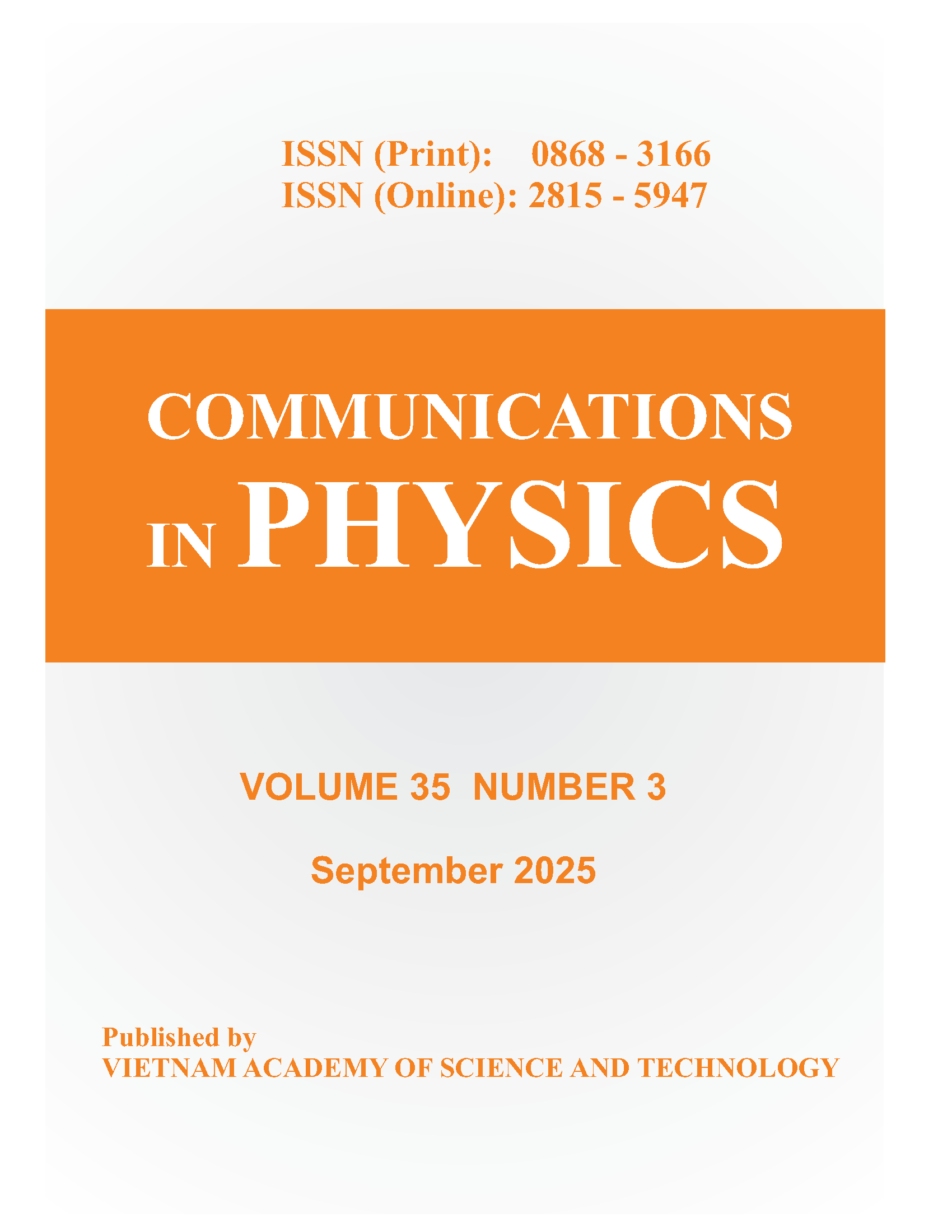Monte Carlo Simulation on the Phase Transition of Animal Group
Author affiliations
DOI:
https://doi.org/10.15625/0868-3166/25/1/5669Keywords:
flocking behaviors, phase transition, Monte-Carlo simulationAbstract
In this work, we proposed a new model in order to study the phase transition behaviour of animal group. The individuals in the group are considered as the XY spins which can move freely in a plane with the same speed. For the interactions between every pairs of the individuals, we used the Hamiltonian of the system in the model of spin current with including a long-range Morse potential. Using the Monte-Carlo simulation technique, we obtained the main parameters of the model: the averaged velocity of all individuals which is equivalent to the order parameter or magnetization for the spin model, and the concentration of the individuals. The simulation result clearly shows that the system has three phases which correspond to the uncollected, flocking (schooling) and runaway behaviors at very low, medium and high noise, respectively. The simulation predictions are in good agreement with experimental observations.Downloads
Downloads
Published
How to Cite
Issue
Section
License
Communications in Physics is licensed under a Creative Commons Attribution-ShareAlike 4.0 International License.
Copyright on any research article published in Communications in Physics is retained by the respective author(s), without restrictions. Authors grant VAST Journals System (VJS) a license to publish the article and identify itself as the original publisher. Upon author(s) by giving permission to Communications in Physics either via Communications in Physics portal or other channel to publish their research work in Communications in Physics agrees to all the terms and conditions of https://creativecommons.org/licenses/by-sa/4.0/ License and terms & condition set by VJS.











